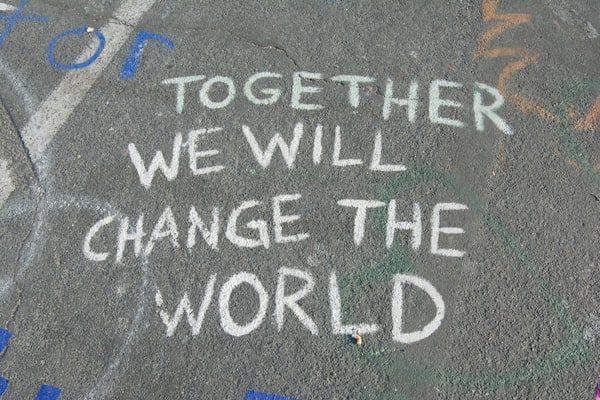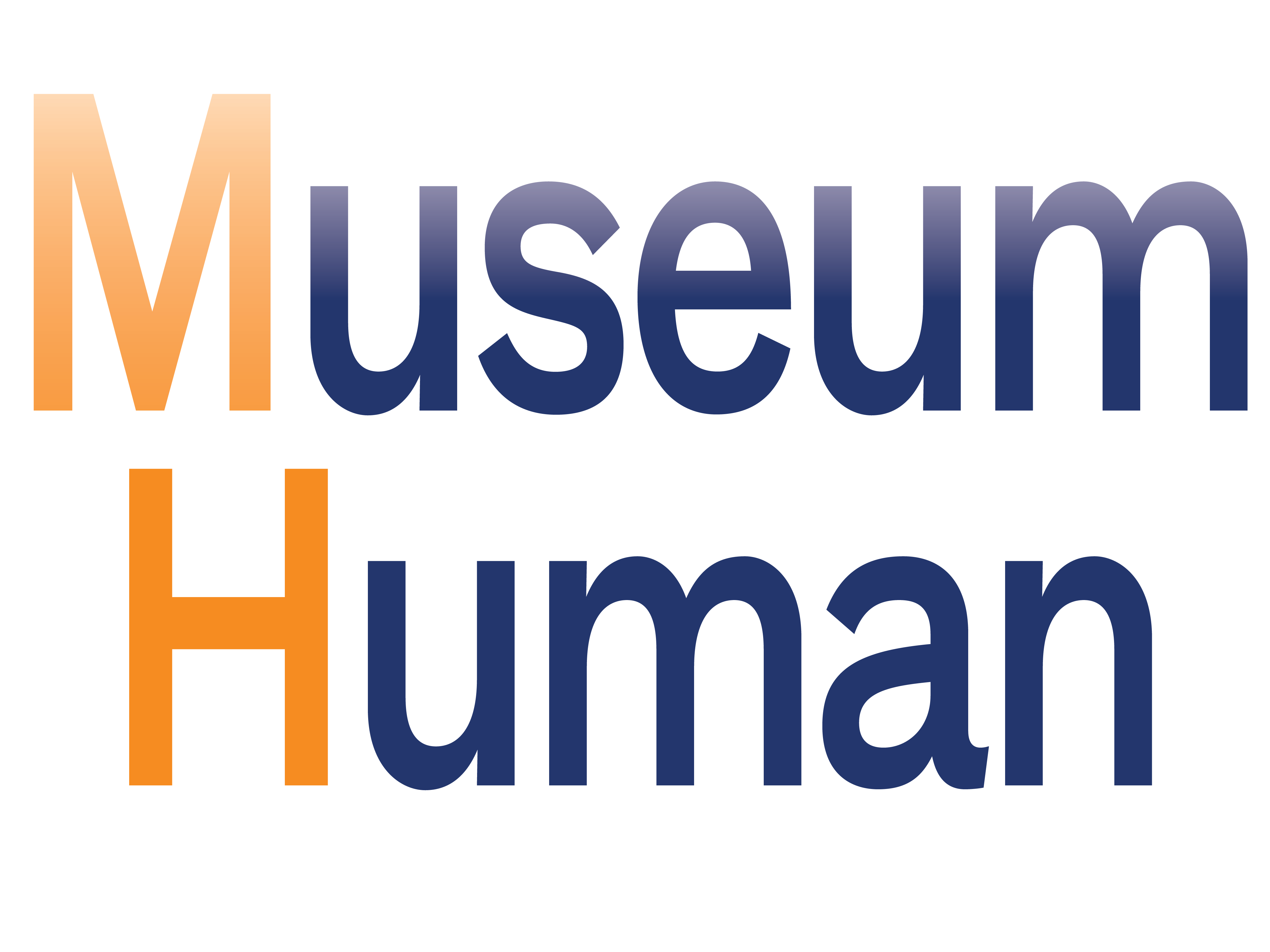
Whose change? And changing into what? What does change mean for museum workers?
If you're reading this and not a subscriber to Museum Human, consider scrolling to the bottom and signing up now—it's free and is the only way to read the site's longer weekly post on the organizational culture of cultural organizations and to learn about upcoming subscriber-only events.
This just in—Harvard Business Review devoted an entire subscriber newsletter to "Managing the Return: Beyond Change Fatigue." One particularly timely article, by authors Mollie West Duffy and Liz Fosslein, is here, with another on surviving and thriving in change environments here. I may have mentioned that Seema Rao and I wrote a book on that very topic (also here on Amazon). Check out other pieces on change from HBR here and here.
Now on to your regularly scheduled links, already in progress …
One: Let's start by calling out the brave decision by the Museum Computer Network not to hold its much-beloved annual conference in 2022. (I couldn't help but think back to the conversation about the future of museum conferences that I participated in earlier this year.) Perhaps it's a positive sign of the times that MCN is acknowledging that a lot of things taken for granted in the field, like those clockwork annual conferences, need rethinking—and that users should be part of that process.
Two: Speaking of Seema, she had one of the all-time best museum-sector takedowns—and that's coming from a position of some (but not enough, apprently) authority. It demonstrates how deep our institutional cultural problems run, and how we can't make change by ourselves.
Three: The tyranny of neurotypicals reinforces certain toxic ideas about leadership and that "weirdos" are only good on the margins of our organizational culture.
Four: As California considers a four-day week, we have to remember that the number of days to the workweek is an intentional decision and not written in stone.
Five: Thinking further about Seema's tweet-thread above, how do we love a job in a field that we joined for love or passion? Change is about ending the rule through fear and the way that organizaitons take advantage of the passions of their workers. Here are some points:
These organizations also avoid feedback tools, which by definition measure each person against a standardized list of skills or competencies. I’ve previously explained in this magazine why feedback is pernicious (“The Feedback Fallacy,” March–April 2019). In short: People’s feedback is inevitably colored by their own loves (and loathings) and offers precious little to help other employees discover and contribute theirs. Aside from input about facts or required steps, feedback generally consists of one person—however well-intentioned—smothering another.
Organizing around love of the work means that no career paths are defined by the skills or competencies required at each level—indeed, no research that I know of in any refereed journal proves that the best practitioners in a given role all have the same skills and competencies. Competency models are an abstraction that denies the real-world truth that people in the same role find love in very different activities and aspects of it—and, therefore, they thrive and excel in the role using quite different methods. Careers will increasingly be designed according to an employee’s own interests and skills. AI-based software offerings such as Gloat, Fuel50, and Flux are the leaders in a growing pack of platforms that build career paths in this way.
Sigh. AI/ML (artificial intelligence and machine learning) again? The article mentions the importance of teams, but we need to be careful, as people can be on multiple teams. Also note how the article discusses check-ins, which are not guaranteed, especially when we have crushing workloads:
Organizations that build trust view a once-a-week check-in between employees and team leaders as the core human ritual at work. During this chat the team leader will not be checking up on or appraising the person or giving feedback. Instead the leader will be talking about the short-term past and future, asking, “What did you love about last week?” “What did you loathe?” “What are your priorities this coming week?” “How can I best help?”
Asking those four questions every week for an entire year will ensure that employees build trust with their team leaders. It doesn’t appear to matter whether the check-in happens in person, on the phone, by email, or in an app. What matters is simply that it happens. During a check-in both people can talk about the specifics of the work the employee is doing, the challenges that might be arising, and what the team leader can do to help. Each sharing of a challenge and each small action to provide support help build trust between them. But not only that: Naming the specific activities they loved the previous week keeps employees’ loves front and center, tied tightly to the real work that needs to get done.
Six: Managers don't know what their workers do or how they do it, and that has to change. And yet the solution is apparently MACHINE LEARNING ALGORITHMS!! I mentioned this briefly last month, but only in passing. Read here:
The future of any work environment — not just remote work environments — thus depends on equipping managers with new tools and techniques to understand and manage their teams more effectively. The use of such tools will require consistent and open privacy standards such as anonymity of users, aggregation of data, and consistent communication from leaders so that employees understand their intentions. Our entire study focused only on teams and did not permit identifying any individuals.
Our advice to change leaders and managers is to treat your team’s experience at work as data. Such data will likely reveal what ails your teams and what is realistically possible with investments in digital transformation and other new initiatives. Then all changes with the best-intentioned managers will be measurable. Conversely, in the absence of such data, top-down goals are set without the facts being known, and teams have little choice but to sign up for plans without understanding their implications, leading to immense pressure on teams. Our hope is that if managers understand more about the specifics of their teams’ work, they will set more realistic targets and help their teams become more productive.
Seven: Since I'm addressing AI/ML solutionism, here's tech-and-humanism writer Douglas Rushkoff on his 10-year-old book Program or Be Programmed:
Without human intervention, technology becomes an accepted premise of our value system: the starting point from which everything else must be inferred. In a world of text, illiteracy is the same as stupidity, and the written law may as well be the word of God. In a world defined by computers, speed and efficiency become the primary values. Refusing a technological upgrade may as well be a rejection of the social norm, or a desire to remain sick, weak, and unrepentantly human.
To most of the developers and investors of Silicon Valley, however, humans are not to be emulated or celebrated, but transcended or — at the very least — reengineered. These technologists are so dominated by the values of the digital revolution that they see anything or anyone with different priorities as an impediment. This is a distinctly antihuman position, and it’s driving the development philosophy of the most capitalized companies on the planet.
Human beings are not the problem. We are the solution. Only by taking command of our technologies can we promote a future in which we will thrive together.
Eight: Are the pandemic and remote hybrid work the death knells for teams in favor of groups of individual contributors? (You may have to think a little bit about the differences between collectives and teams.) This isn't necessarily the take I expected, but it's interesting in a way—except that it misses many of the reasons that teams don't work, often for factors beyond their control. It's not just that collaboration is hard, it's that we don't have the time, or we have too much work, to be effective. And I think teams can be more empowered if there is more internal competition in institutions.
Nine: What would a data-driven organization look like? How does data lead to change? We can extrapolate from this article to the effect data can have on museum organizations, but the issue continues to be, how do we get "digital for everyone"? What would the label process look like? There would be data on which labels work best, why some are too long, or the effect of labels that don't comply with the ADA. (Read this Twitter thread about the ADA and the difference between true accessibility and mere compliance.) And would all of these matter if our orgs still don't work?
Ten: How well is museum work "designed"? This article from MIT's Sloan Review wonders if we can change and design better work. Right now, we have little autonomy because of department head power and veto ability and lack of accountability (trustee/donor support), crushing workloads, no opportunities to learn, and little concern across the org for others' well-being.
Liberation
I've made a sort-of alt-career out of going on and on about change and how we're the key to it. Besides a good early Greek philosophy debate, my own meditative practice has a lot to say about change and impermanence—in fact, I say every morning, "and the three perceptions of inconstancy, suffering, and no-self." (Your translation may vary.)
Change at work can involve suffering because we often hold on to constancy, especially when paychecks help support our families and provide for our caregiving. Liberation comes from accepting the nature of change, if not each and every change.
If you're reading this and not a subscriber to Museum Human, consider signing up for a free subscription below—it's the only way to read the site's longer weekly post on the organizational culture of cultural organizations and news about upcoming subscriber-only events. Thank you for reading!
Cover image by Priscilla Gyamfi / Unsplash [description: the words "together we will change the world" drawn in white chalk on asphalt]

Links of the Week: May 13, 2022: Change Like You Mean It by Robert J Weisberg is licensed under a Creative Commons Attribution-NonCommercial-ShareAlike 4.0 International License.






